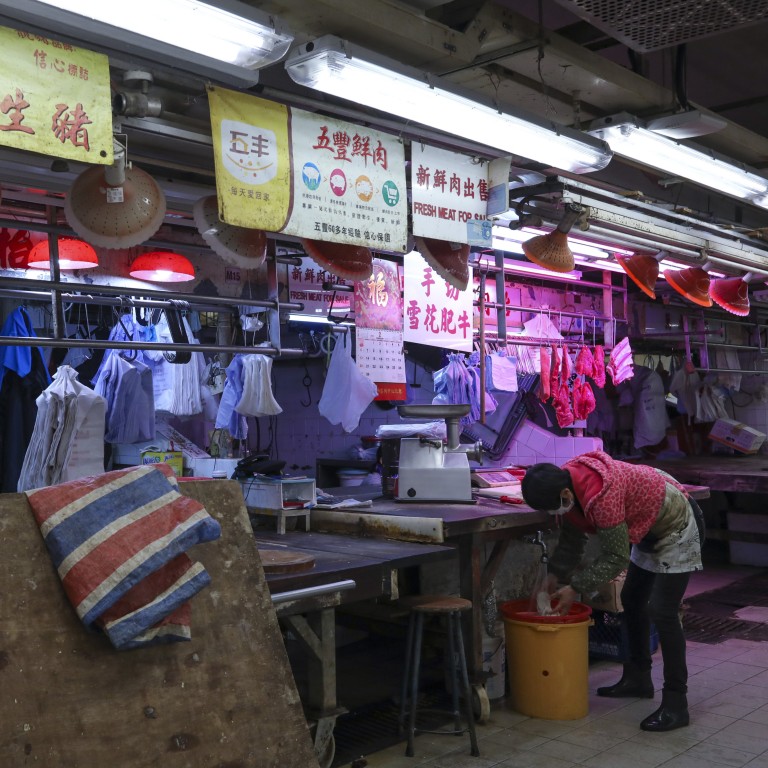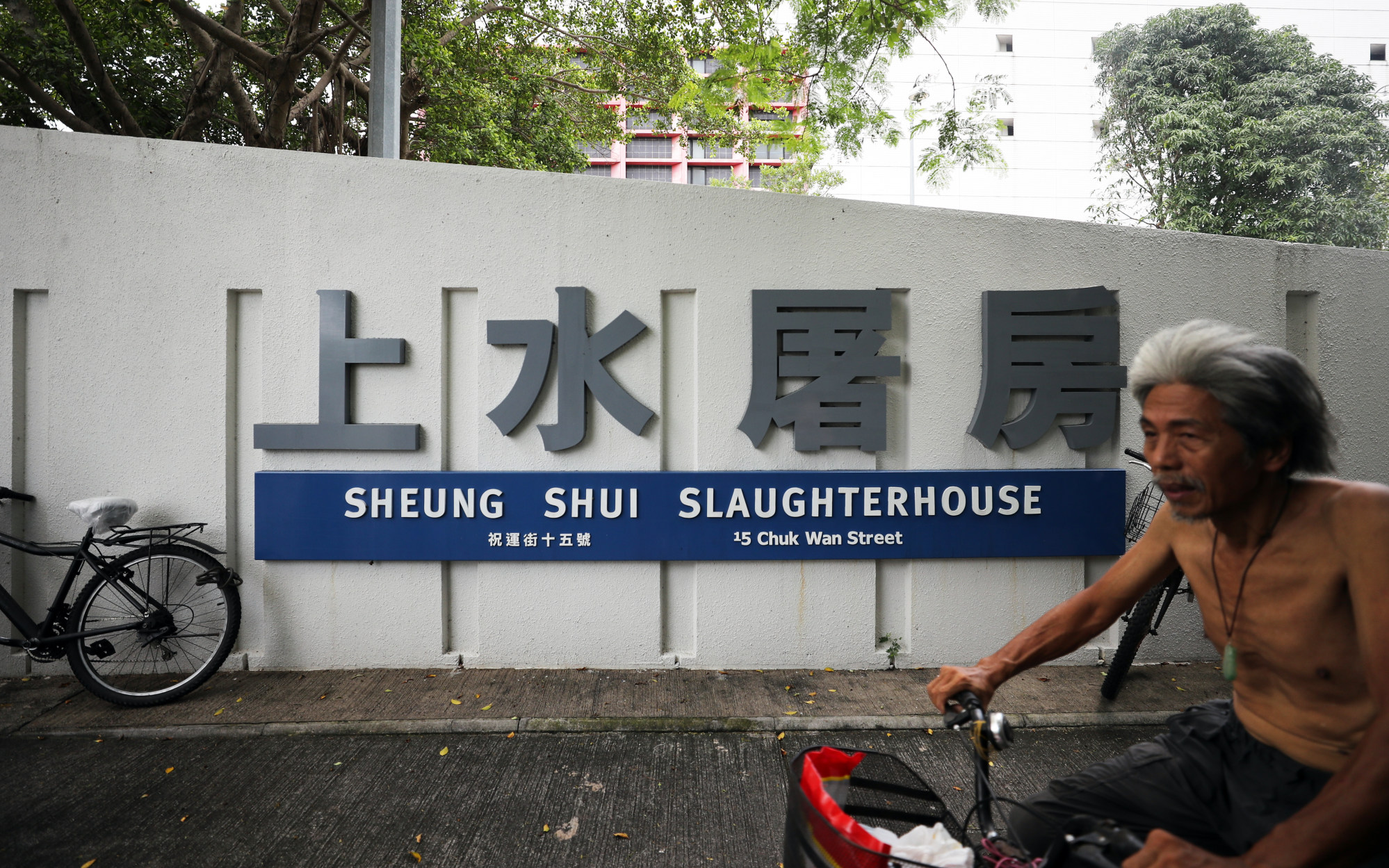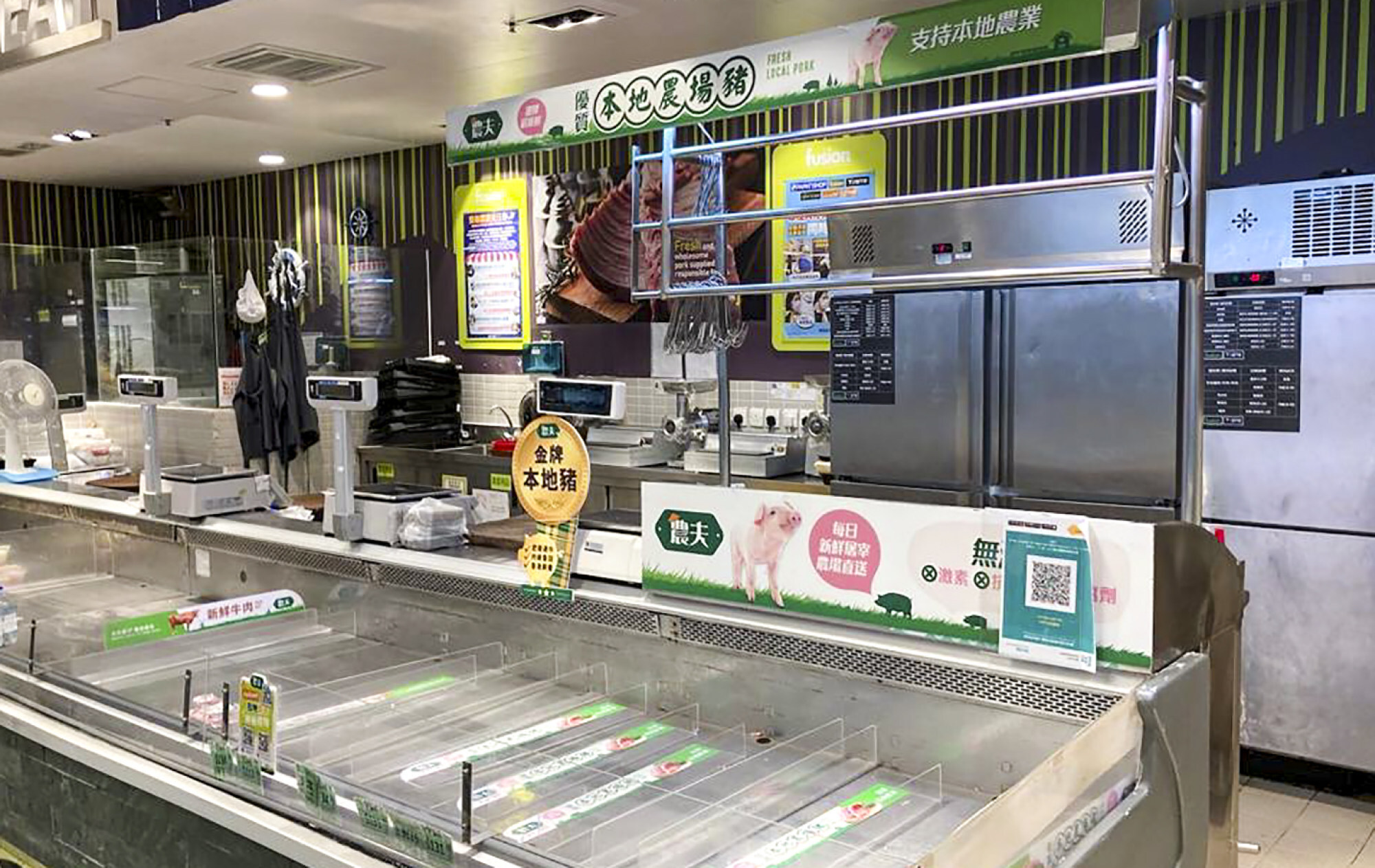
Coronavirus: Hong Kong residents rush to stock up on frozen meat after outbreak at abattoirs affects supply
- Closure of two slaughterhouses has affected supply, with a number of fresh meat stalls closed and residents forced to buy frozen products instead
- Mainland China is studying how to help Hong Kong resolve food supply problems, an official there tells the Post
Most fresh meat stalls in Hong Kong’s wet markets were closed on Saturday because of a shortage of supply, forcing residents to stock up on frozen products instead.
The panic buying scenes were triggered by the closure of Sheung Shui and Tsuen Wan slaughterhouses early Saturday morning, after the Food and Environmental Hygiene Department found 183 positive Covid-19 cases out of 866 samples from people in the Sheung Shui abattoir the day before.
The two facilities are closed until further notice for disinfection. The government has also appealed to food suppliers to increase the stock of frozen meat products to meet community demand.

Mainland China was studying how many butchers Hong Kong would need and what facilities could be used temporarily, an official there told the Post.
“It is easier to send pork to Hong Kong than sending butchers and live pigs there,” the source said. “The problem is now the existing facilities need to be cleaned and sterilised … The mainland will send an adequate supply of pork while figuring out ways to help Hong Kong resolve its current problems.”
The shortage of fresh meat was keenly felt by stall owners and customers in two wet markets the Post visited on Saturday morning.
In Tiu Keng Leng, all four fresh meat stalls at Choi Ming market were closed.
Meanwhile, an employee at a fresh pork stall at Sheung Tak wet market in Tseung Kwan O said fresh meat was sold out by about 9am, three hours after the business opened, while another stall owner said she would not increase prices despite the drop in supply.
Hong Kong could bring in mainland Chinese butchers after Covid-19 outbreak at abattoirs
Frozen meat stalls benefited from a lack of fresh product, with customers flocking over for their supply instead. One frozen meat stall owner at Sheung Tak market said revenue had risen by 20 per cent to 30 per cent recently.
Residents who were used to buying fresh meat switched to frozen goods to get their daily protein intake. A customer surnamed Wong said she was forced to buy frozen meat for the first time.
Another resident surnamed Ng said frozen meat had become more expensive, although the price was still lower than fresh meat.
“I used to spend about HK$100 (US$12.80) on meat before, but recently I have been spending HK$150 to HK$200 on it,” Ng said. “I spent HK$137 on meat today. I will continue buying the same portions as before as I need to feed three people in my family.”

Many residents also flocked to supermarkets, causing frozen meat shelves to run low on stock by about 11am.
The government on Saturday said the supply of fresh food from the mainland remained generally stable.
It said about 2,200 tonnes of vegetables were supplied by the mainland on Friday and overall wholesale prices remained stable, while the total supply of chilled poultry and meat was about 90 per cent and 85 per cent of the usual level, respectively.
Food supplies have been disrupted amid the city’s worsening public health crisis, and meat is not the only product affected. A number of cross-border truck drivers tested positive for Covid-19 in Shenzhen, affecting the supply of vegetables from the mainland in the past few weeks.
To ensure a continuous supply of fresh food and livestock, the government said on Friday it was coordinating with industries and mainland authorities to deliver the goods through rail from Lo Wu after opening three cross-border sea freight routes.
The first batches of vegetables, a total of 31 tonnes, imported by sea arrived in the city last Saturday.


